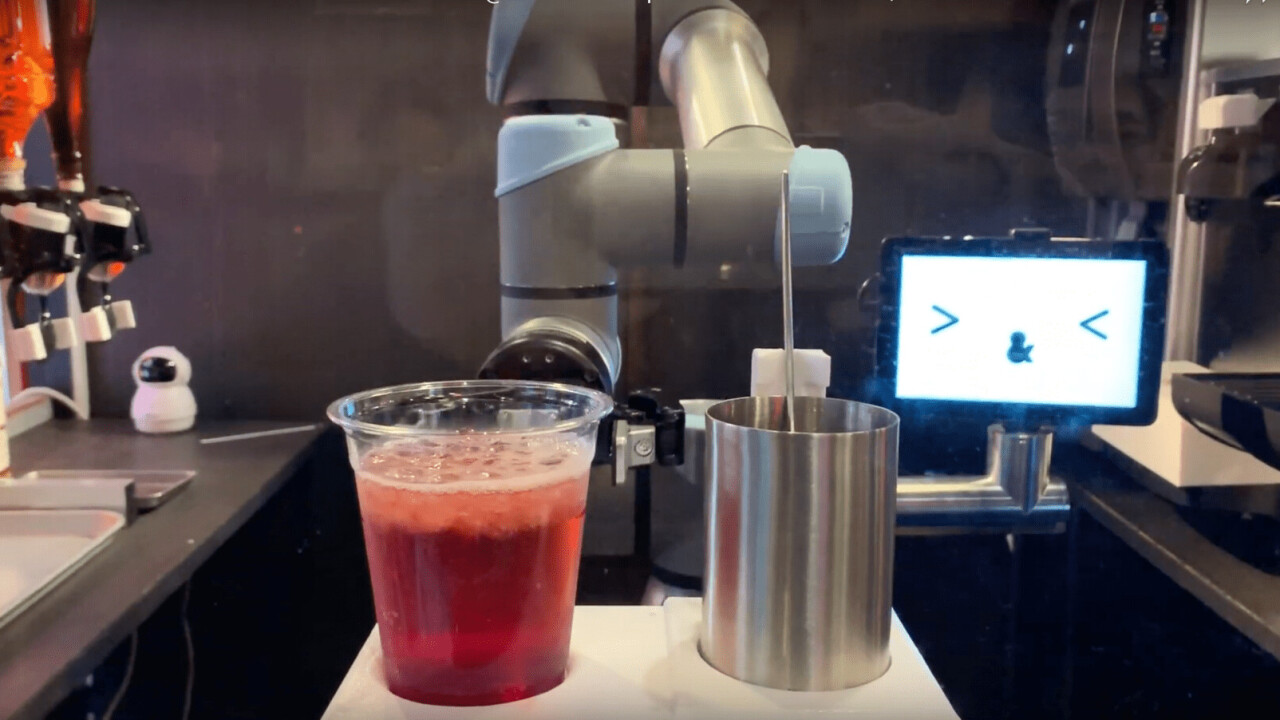A bar in Tokyo is tackling its problems finding new staff by employing an automated alternative: A robotic bartender that can pour a beer in 40 seconds and mix a cocktail in a minute.
Customers at the Zeroken Robo Tavern in Ikebukuro train station first order their drinks at an automated kiosk, which prints a QR code receipt that they take to the robot. The machine then scans the code, which triggers its robotic arm to swing into action, mixing the drink and swiftly returning it to the customer.
Watch the video below to see how it works.
The robot may not yet match the personal touch offered by human bartenders, but it does provide a smiling face on a tablet that can chat about the weather. It is also equipped with four cameras fitted with AI software that analyzes their expressions.
Its performance will be assessed over a two-month trial, to evaluate its value and the responses of customers.
Japan’s robotic workforce
The QR Robotics machine costs around ¥9 million ($82,000) — the equivalent of employing a human bartender for three years, according to Reuters.
“We hope it’s a solution,” said Yoshio Momiya, a manager of the Yoronotaki restaurant chain where the robot is installed.
“There are still a number of issues to work through, such as finding enough space for it, but we hope it will be something we can use.”
[Read: This ‘Ultrasonic gripper’ lets robots move things without touching them]
Japan’s aging and declining population has left the country with a shortage of young workers — which makes the country a tempting testbed for robotic replacements.
The country is already the fourth most automated in the world, but Japanese citizens are wary of the impact of their expanding robotic workforce. A survey published by the Pew Research Center in 2018 found that 83 percent of respondents in the country fear that automation will worsen inequality, while 74 percent believe that it will make ordinary people struggle to find jobs.
Get the TNW newsletter
Get the most important tech news in your inbox each week.






